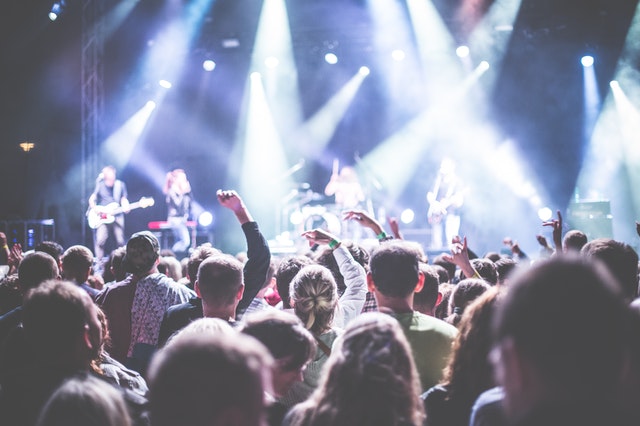Your inner ears contain tiny hair cells, called stereocilia, that translate soundwaves into electrical energy that is then transmitted through the auditory nerve to the brain. When you attend a concert or any other event that exposes you to loud noises, you can harm those little hairs. Once damaged, they can misfire, sending made-up sound signals to your brain. The resulting ringing in your ears is called tinnitus.
How Can I Make It Stop?

While there is no medical cure for tinnitus, there are strategies to help lessen the discomfort.
Keep the Volume Down
The last thing you want is to cause more damage to your hearing. For the next few days, be especially careful to keep the volume low on your headphones and TV speakers. Try to avoid noisy venues like restaurants or bars.
Distract Yourself
The more you think about your tinnitus, the more uncomfortable you’ll be. Try meditation, yoga or other gentle exercise to clear your mind and relax your body.
Play White Noise
White noise apps like Noisli can help mask the sounds of tinnitus. The same effect can be achieved by turning on a fan or humidifier.
Avoid Possible Triggers
Tinnitus can be worsened by alcohol, caffeine, sodium, tobacco and certain medications like aspirin. Try to avoid these substances.
How Loud Is Too Loud?
Any sound above 85 dB can cause permanent damage to your hearing. For reference, 85 dB is about the volume of heavy traffic or a busy restaurant. Most concerts clock in at a whopping 100-105 dB, which can cause irreversible damage to your auditory system after just 15 minutes of exposure.
If your tinnitus doesn’t go away after a couple days, it’s possible that permanent damage has occurred. An audiologist can help identify any hearing loss or other potential causes for your tinnitus.
Preventing Tinnitus
Before your next concert, consider investing in a set of musician’s earplugs. These devices can be custom-made for maximum comfort, and are perfect for music aficionados because they block unsafe noise levels while still providing crystal-clear sound quality.
To learn more about custom hearing protection, talk to a provider at San Diego Hearing Center today!